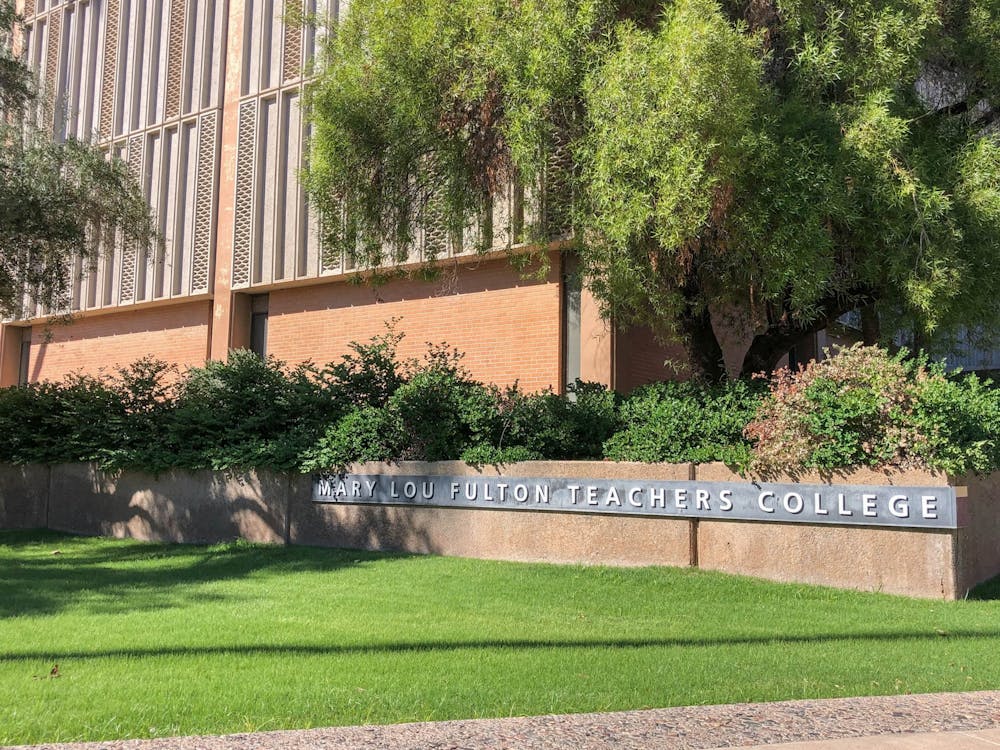The Arizona Teachers Academy recently received $15 million to fund more tuition scholarships given to teachers if they stay in Arizona. This measure attempts to address Arizona's worsening teacher shortage by covering the tuition costs of aspiring teachers. Although well-intentioned, increasing teacher scholarships is a laughable Band-Aid solution that fails to resolve Arizona's escalating teacher crisis.
David Berliner, a Regents professor emeritus in the Mary Lou Fulton Teachers College, stresses that providing resources for students to go to college in itself is beneficial. However, he posits that infusing money into scholarships is not an ideal strategy if the goal is to improve teacher retention.
"The college degree is good, but even if (students) go into teaching they will leave in a couple years because the status and pay are very poor," Berliner said. "The respect isn't there and the pay as a teacher is not there."
Observing these working conditions caused Sierra Pitlick, a former education student at ASU, to switch her major to psychology.
"You see people who are doing the job you want to do and you can tell how much they really don't want to be doing it anymore," she said. "I would rather save myself the major disappointment of thinking, 'Oh, I can do it anyway,' and then a couple years down the line being like, 'Oh wow, they were right this was not at all what I was hoping for.'"
Pitlick added that she is now paid as much, if not more, in her current entry-level position than if she continued on to be a teacher. Berliner cites this unfortunate reality as the heart of the teacher retention issue.
"The root of everything is decent pay," he said. "It's false to think you can get (students) into the college track to get teaching credentials and then retain them. It’s not a job that you can love if you don't have respect and pay."
Pitlick expressed similar skepticism about tuition scholarships as solutions to Arizona's teacher crisis.
"I've never really heard people complain about the tuition that they have to pay," she said. "It's the (other) costs of the job."
Minimal pay is only part of the package. Paying out of pocket for school supplies and taking on extra hours to assist schools' extracurricular programs are among the additional financial and temporal expenses that teachers take on, according to both Pitlick and Berliner.
Across Arizona, teachers face short staffing, burnout and insufficient support on top of earning 20% less than peers with similar educational backgrounds in other fields. Add managing students and dealing with uncooperative parents to the melee and the teacher landscape ends up resembling more of a perpetually losing battlefield than a classroom.
Responding to this grim and ongoing crisis by trying to bribe students to become teachers brilliantly exemplifies the circular reasoning that has characterized Arizona's deficient education policy for so long.
After all, what student would want to leap headfirst into teaching if the working conditions are only worsening? If, once they exit college with a diploma in their hands, they will make less money, work more hours and get less respect than their non-teacher peers? No amount of tuition money is worth exchanging a potentially livable future for the soul brutalizing job that is teaching in Arizona.
Instead of throwing money into paying teachers' tuition, maybe it's time to put the money into cutting better paychecks.
Edited by Piper Hansen, Reagan Priest and Anusha Natarajan.
Reach the columnist at mosmonbe@asu.edu.
Editor's note: The opinions presented in this column are the author's and do not imply any endorsement from The State Press or its editors.
Want to join the conversation? Send an email to opiniondesk.statepress@gmail.com. Keep letters under 500 words and be sure to include your university affiliation. Anonymity will not be granted.
Like The State Press on Facebook and follow @statepress on Twitter.




